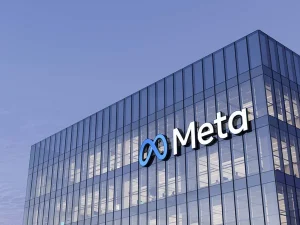Agent Swarms: Progress and Perils in a Human-Free WorldThe development of agent swarms, collections of autonomous agents coordinating to achieve a common goal without human intervention, represents a significant leap in artificial intelligence. This technology holds immense promise across various sectors, from logistics and resource management to scientific research and exploration. However, the absence of human oversight introduces considerable risks that demand careful consideration.Progress and Potential:Agent swarms offer unparalleled efficiency and scalability. Their decentralized nature allows them to adapt to changing conditions far more rapidly than traditional systems. Imagine a swarm of drones autonomously responding to a natural disaster, delivering aid and assessing damage far more quickly and effectively than human teams. Similarly, in manufacturing, swarms could optimize production lines, predict failures, and adapt to fluctuating demands without human intervention. In scientific research, swarms could explore complex environments, analyze vast datasets, and conduct experiments with a level of precision and speed currently unattainable.The potential extends beyond efficiency. Swarms could tackle tasks too dangerous or difficult for humans, such as exploring hazardous environments or performing intricate surgeries. They could also operate in environments where human presence is impossible or impractical, such as deep space exploration or underwater surveys.Risks and Challenges:The absence of human oversight is precisely what makes agent swarms so powerful, but also so dangerous. The potential for unintended consequences is substantial. A swarm’s behavior is emergent, meaning that the collective behavior is not always predictable from the behavior of individual agents. This makes it challenging to anticipate and mitigate potential failures or malfunctions.One major concern is the potential for unintended damage. A swarm of robots malfunctioning in a critical infrastructure system could cause widespread disruption. A swarm of autonomous weapons could lead to catastrophic consequences if not properly controlled. The difficulty in predicting the behavior of a complex system means that rigorous testing and safety protocols are crucial, yet these are incredibly difficult to design and implement effectively.Another concern is the potential for bias and discrimination. If the algorithms that govern individual agents are biased, the collective behavior of the swarm could amplify these biases, leading to unfair or discriminatory outcomes. Ensuring fairness and accountability in autonomous systems is a significant challenge, requiring careful consideration of ethical implications and the development of robust auditing mechanisms.Finally, there is the issue of security. A swarm of agents could be vulnerable to hacking or malicious control, potentially causing significant damage or disruption. Robust security measures are essential to prevent unauthorized access and control, and these measures must be constantly updated to counter evolving threats.Conclusion:Agent swarms represent a powerful and potentially transformative technology, but their development and deployment must be approached with caution. The benefits are significant, but the risks are equally substantial. Addressing the challenges of unpredictability, bias, security, and accountability is crucial to ensuring that this technology is used responsibly and safely, maximizing its potential while minimizing the risks.Agent Swarms: A Future Without Human Oversight?The development of agent swarms, autonomous entities collaborating without direct human control, represents a significant leap in artificial intelligence. While promising unprecedented efficiency and problem-solving capabilities, this technology also presents considerable risks that demand careful consideration.
This essay will explore both the progress and perils inherent in this emerging field.Progress: Agent swarms show remarkable promise across numerous sectors. In logistics, swarms of autonomous drones could optimize delivery routes, dynamically adjusting to traffic and weather conditions, resulting in faster and more cost-effective shipping. Similarly, in environmental monitoring, swarms of robots could survey vast areas, collecting data on pollution levels, deforestation, or wildlife populations with far greater speed and coverage than human teams. The potential for advancements in manufacturing, search and rescue operations, and even space exploration is equally compelling. The decentralized nature of swarms provides inherent robustness; the failure of one agent doesn’t cripple the entire system. Their adaptability to changing environments is also a key advantage, allowing them to respond effectively to unforeseen circumstances.Risks: The absence of human oversight introduces significant challenges. The most immediate concern is the potential for unintended consequences. A swarm tasked with optimizing a system might find solutions that are technically efficient but ethically problematic. For example, a swarm optimizing traffic flow might prioritize speed over safety, leading to an increased risk of accidents. The complexity of swarm behavior makes it difficult to predict their actions reliably. Even with sophisticated algorithms, emergent behavior – unexpected patterns arising from the interaction of individual agents – can lead to unforeseen outcomes. This unpredictability makes it challenging to ensure the safety and reliability of these systems, especially in critical applications.Another significant risk is the potential for misuse. Autonomous weapon systems, for instance, pose an immense ethical and security concern. The decision-making process would be removed from human judgment, potentially leading to unintended escalation or catastrophic consequences. The lack of transparency in swarm decision-making further exacerbates these concerns, making it difficult to understand why a swarm took a particular action. Cybersecurity is also a critical issue. Swarms could be vulnerable to hacking, potentially causing them to malfunction or be used for malicious purposes.Conclusion: Agent swarms represent a powerful technological advancement with the potential to revolutionize many aspects of our lives. However, their development and deployment require careful consideration of the associated risks. Robust safety mechanisms, ethical guidelines, and transparent decision-making processes are crucial to mitigate the potential for harm. As we continue to advance this technology, a proactive and responsible approach is essential to ensure that agent swarms are used for the benefit of humanity, rather than posing a threat to it.Agent Swarms: A Brave New World (Without Humans in the Loop)The rise of agent swarms, autonomous groups of AI agents collaborating without direct human control, represents a massive leap in artificial intelligence. Think of it like a highly coordinated ant colony, but instead of foraging for food, these digital ants are optimizing supply chains, developing software, or even managing financial markets. This shift presents incredible opportunities for progress, but also raises serious ethical and practical concerns.Progress and Potential:Unprecedented Efficiency: Agent swarms can process information and react to changes at speeds far beyond human capabilities. Imagine a self-optimizing supply chain that instantly adjusts to disruptions, minimizing delays and costs. Or a swarm of AI agents developing and testing software, iterating and improving at a pace that would leave human programmers in the dust. This level of efficiency could revolutionize numerous industries.Complex Problem Solving: Agent swarms can tackle problems of complexity that are beyond the grasp of individual AI or even teams of human experts. By distributing tasks and sharing information, they can find optimal solutions in situations with many variables and constraints.24/7 Operation: Unlike humans, agent swarms can work continuously, without breaks or fatigue. This allows for constant monitoring, optimization, and response to dynamic situations, leading to improved performance and reliability.Risks and Challenges:Unforeseen Consequences: The decentralized nature of agent swarms makes it difficult to predict their behavior. What happens when a swarm encounters an unexpected situation? Could unintended consequences arise from the collective actions of many independent agents? The potential for cascading failures is a significant concern.Lack of Transparency: Understanding the decision-making processes of a complex swarm can be incredibly challenging. This lack of transparency makes it difficult to identify errors, debug problems, or hold anyone accountable for undesirable outcomes. This is a major hurdle for adoption in high-stakes areas.Bias and Discrimination: If the individual agents within a swarm are trained on biased data, the swarm’s collective behavior could reflect and amplify those biases, leading to unfair or discriminatory outcomes. Ensuring fairness and mitigating bias in agent swarms is crucial.Security Risks: A swarm of autonomous agents represents a potentially large attack surface. If compromised, a swarm could cause significant damage, making security a paramount concern.Job Displacement: The automation potential of agent swarms is undeniable. While some argue this will lead to new opportunities, the potential for significant job displacement across various sectors is a serious social and economic challenge that needs careful consideration.Moving Forward:The development and deployment of agent swarms require careful consideration of both their potential benefits and inherent risks. Robust testing, rigorous ethical frameworks, and transparent oversight are essential to ensure their responsible development and deployment. Addressing the concerns regarding bias, security, and job displacement is crucial to harnessing the power of agent swarms while mitigating their potential downsides. The future of agent swarms is exciting, but only if we navigate this path responsibly.





















